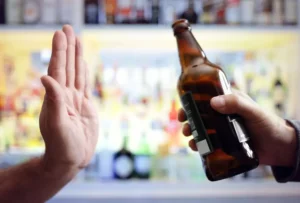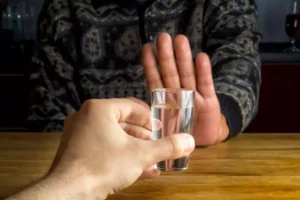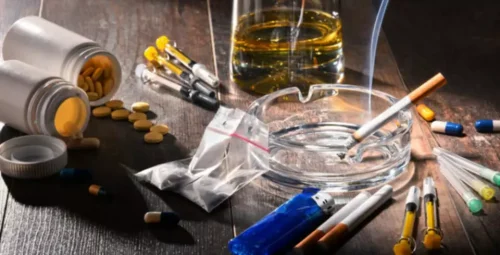
Developing a tolerance to alcohol is another reason you might experience night sweats. As your body becomes accustomed to alcohol, you may need to consume more to achieve the same effects, which can worsen night sweats. Furthermore, if you abruptly stop drinking, you may experience alcohol withdrawal symptoms, which also include night sweats.

How is alcohol withdrawal treated?
Some people have a headache a few hours after drinking wine — especially red wine. But it’s different from a hangover, which may or may not include a headache. It’s possible that some chemicals in wine and how the body responds to them could result in a headache after drinking wine. More research is needed to find the exact cause of wine headache. Withdrawal symptoms can begin as soon as a few hours after your last drink or within several days.
Night Sweats and Alcohol: Why Alcohol Makes You Hot
Alcohol affects the nervous system and can cause your blood vessels to tighten, which results in increased blood pressure. Your body’s temperature is regulated by the hypothalamus, a portion of the brain responsible for thermoregulation. When you consume alcohol, it can cause your body temperature to rise, leading the hypothalamus to trigger the body’s cooling mechanisms, such as sweating. Since alcohol disrupts your body’s temperature regulation, it can also cause further sweating as the night goes on. While many people naturally experience a body temperature drop overnight as they sleep, studies show alcohol might actually block this natural cycle when one is intoxicated. This can contribute to alcohol-related insomnia, and be especially bothersome for women during menopause.
- A spike in insulin levels causes hypoglycemia or low blood sugar and this is usually accompanied by sweating.
- The first step towards alleviating these symptoms is considering quitting drinking altogether.
- BetterHelp offers affordable mental health care via phone, video, or live-chat.
Ongoing Support

But drinking too much alcohol of any color can still make you feel bad the next morning. However unpleasant, most hangovers go away on their own, though they can last up to 24 hours. If you choose to drink alcohol, doing so responsibly can help you stay away from hangovers. You probably don’t think of being sweaty as a good thing, but it serves an important function. This can lead to facial flushing, dizziness, rapid heartbeat, headache and nausea.
- If you are experiencing night sweats related to alcohol consumption, it’s essential to seek medical advice.
- In this post, we’ll explore the causes of night sweats related to alcohol use and discuss how cutting back on or quitting alcohol can help.
- Without diagnosis and treatment, it could lead to liver complications.
- A small amount of alcohol is broken down in your stomach lining, but your liver metabolizes most of it.
- Find answers to common questions about how alcohol causes night sweats during withdrawal, how long they last, and alcohol abuse treatment options.
- The body reacts by releasing insulin, a hormone that reduces blood sugar levels.
What Are Alcoholic Night Sweats?
If you feel that any of our content is inaccurate, out-of-date, or otherwise questionable, please contact at Alcohol can contribute to sweating due to its effects on the circulatory and central nervous systems. Our team can help you determine if your addiction treatment at Evoke Wellness could be at little to no-cost to you. Complete the form below and we will complete your insurance verification and get back with you shortly. You’ll meet millions of fellow Reframers in sweating after drinking our 24/7 Forum chat and daily Zoom check-in meetings. Receive encouragement from people worldwide who know exactly what you’re going through!

You’ll also have the opportunity to connect with our licensed Reframe coaches for more personalized guidance. This might involve finding alternative, alcohol-free ways to socialize or manage stress, such as taking up a new hobby or joining a sober social group. You might also consider enlisting the support of friends or family members who can help you stay accountable to your goals.
Are Night Sweats Normal After You Stop Drinking Alcohol?
The detox process is a difficult but necessary step in overcoming alcohol dependence. Besides consuming alcohol, there are other triggers for night sweats. Your body tries to cool down by producing sweat which is often referred as ‘sweating out’ the consumed alcohol. Understanding the various factors contributing to night sweats is key in determining the appropriate action for effectively addressing this symptom. To find another treatment program, browse the top-rated addiction treatment facilities in each state by visiting our homepage, or by viewing the SAMHSA Treatment Services Locator. For more information about alcohol detox and how to find an alcohol detox program near you, call our helpline to connect with one of our staff members today.


Night sweating may also indicate certain types of cancers, which a person can discuss with their oncologist. A person should seek immediate medical attention if they experience these symptoms. You may sweat due to the heat if you may be drinking in an outdoor environment or under the sun, of course! Besides this, if you’re drinking while seated in a crowded, poorly ventilated place, you might also feel overheated. There are numerous resources and dedicated professionals available to help guide you toward recovery. True night sweats cause you to soak your clothing and sheets with perspiration.
